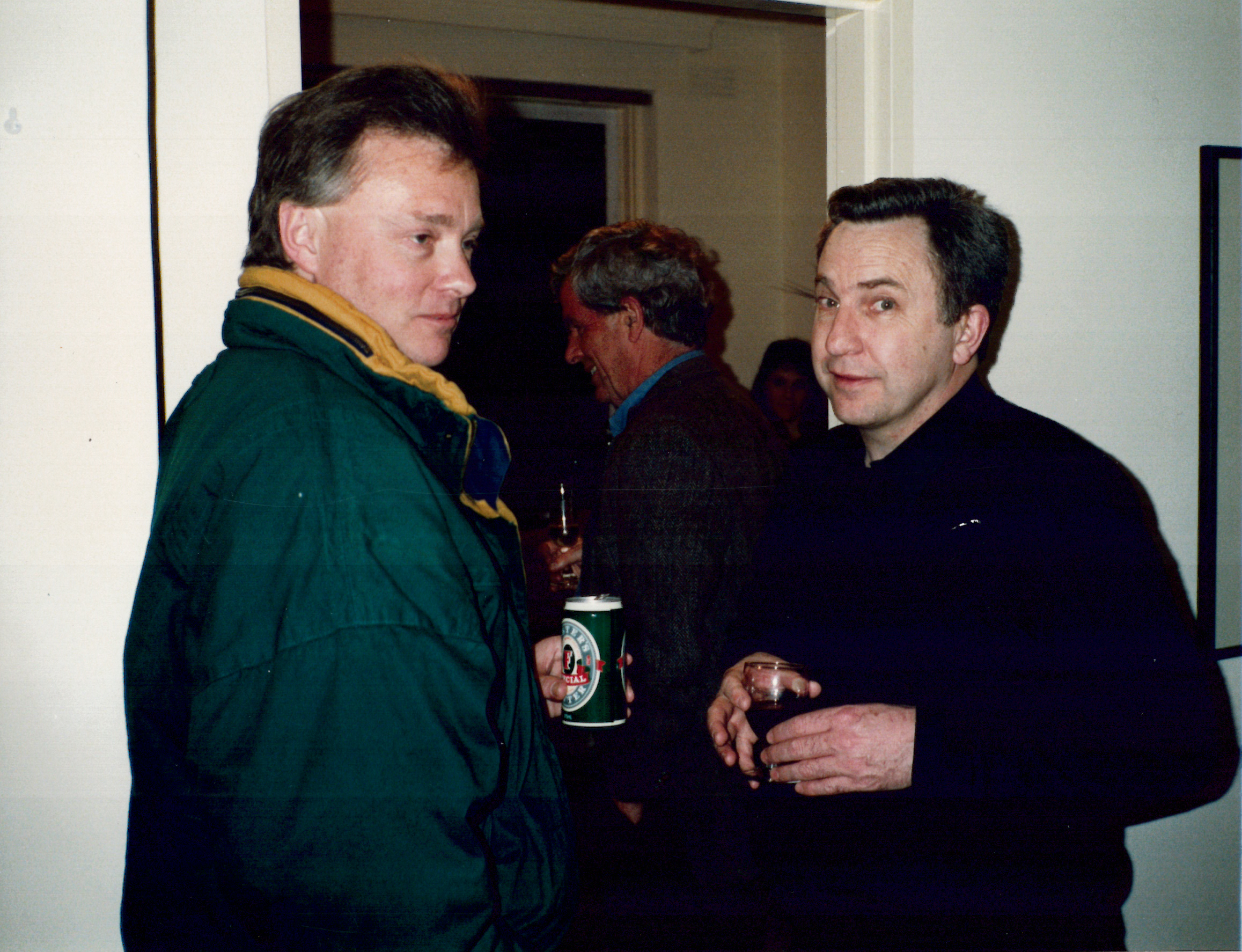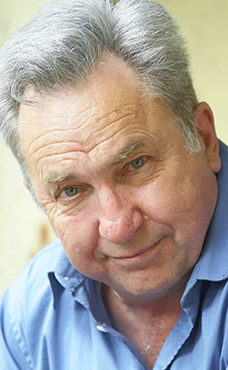
- Free Article: No
- Contents Category: Commentary
- Custom Article Title: Intricacies of aliveness: A personal tribute to John Tranter (1943-2023)
- Review Article: Yes
- Article Title: Intricacies of aliveness
- Article Subtitle: A personal tribute to John Tranter (1943-2023)
- Online Only: No
- Custom Highlight Text:
Poet and editor extraordinaire John Tranter died on 21 April 2023, after a few cruel years of illness with Lewy body dementia. Friends and family gathered at his funeral in the inner Sydney suburb of Rozelle on what would have been his eightieth birthday (29 April) to celebrate John’s remarkable life and mourn his loss. I was honoured to be one of the speakers: what follows incorporates what I said there.
- Article Hero Image (920px wide):

- Article Hero Image Caption: John Tranter (right) and Laurie Duggan at a party after the 1993 Melbourne Writers Festival (photograph courtesy of Peter Rose)
- Featured Image (400px * 250px):

- Alt Tag (Featured Image): A personal tribute to John Tranter (1943-2023)
I was lucky to know him for fifty years as a wonderful friend, mentor, and poetic father-figure. As I was growing up, John himself, his books (I used to carry his early ones around with me at school), and later Jacket were inexhaustible and formative resources. He was kind and attentive, as well as brilliant and demanding. He loved to fix stuff and to show you how to do everyday things, such as changing a printer cartridge. When I first went to San Francisco, he made me a detailed itinerary, telling me where to stop for a drink, what bookshops to go to, even where to cross the road! He was nothing if not thorough.
I remember vividly meeting John and Lyn for the first time in 1974, in the living room of our house in Jersey Road, Woollahra. They had come to visit my mother, Dorothy Hewett, just after we had moved from Perth to Sydney. I was thirteen, they were about thirty. John had just published Red Movie and The Blast Area. To me they were the manifestation of the stylish literary life Mum said would be revealed to us in Sydney, and they became fixtures in our lives – touchstones of dependability, hospitality, and nurture through turbulent times.
Over the years, John was my most important poetic mentor. My first academic publication was an essay on his sequence, The Alphabet Murders (1976), in Australian Literary Studies. Writing about John’s poetry has always been continuous with loving him. My most recent academic piece, about Jacket and his bravura long poem ‘The Anaglyph’, was the only essay I ever wrote about John that we couldn’t share; that he couldn’t enjoy reading. There is plenty more of that to come – the hard truth that there will be no more cups of tea in the kitchen at Balmain, no more phone calls or postcards or readings (I loved hearing him read, and reading with him) – no more itineraries or patient instructions.
It was typical of John’s generosity that I first encountered ‘The Anaglyph’ as an ephemeral edition he had produced as a giveaway for the conference, Poetry and the Trace, at the State Library of Victoria. I sat in the auditorium, listening to him read it for the first time, following along, feeling delighted and excited to be there for the début of this remarkable poem, itself an ingenious reinhabitation of John Ashbery’s poem ‘Clepsydra’, using the first and last words of Ashbery’s lines to produce a new stealth poem inside a poem. It is an elegant encapsulation of Tranter’s experimental method, his trademark mixture of homage and reinvention. As ever, he made it seem easy, his sprezzatura a wonder to behold.
‘Expressive’ is a term often used these days to characterise straightforwardly experiential lyrics of the sort Tranter disliked. Tranter’s kind of experimentalism avoided autobiographical solipsism or coherence, but was no enemy of expression, feeling, meaning, character/persona, or mode of address. On the contrary, his poetry is charged and alert – affectively, intellectually, formally, linguistically – precisely because of its reliance on common ground and shared experience, its relationality at the level of both intertextual engagement and cultural immersion.
The title of Tranter’s final book, Heartstarter, which I launched in Sydney, captures the powerful, defibrillating jolt he sought in poetry and his sense of indebtedness to technological enhancement, whether in the form of a martini, a computer program, a printer, a drug, a poem-machine. His atmospherically rich poetry explored intricacies of aliveness, of relation and orientation – At the Florida (1993), Under Berlin (1988), The Floor of Heaven (2000), Dazed in the Ladies Lounge (1979), Crying in Early Infancy (2000) – with dazzling brio and charismatic formal authority. ‘The Anaglyph’ ends: ‘just now somebody / Is phoning to arrange for a drink – will you join me? – later this evening’. How I wish I could. But the poems are here, the invitation is open-ended and the jokes are still funny: ‘Your well-wrought urn in the center of the square – it is still intact.’



Comments powered by CComment